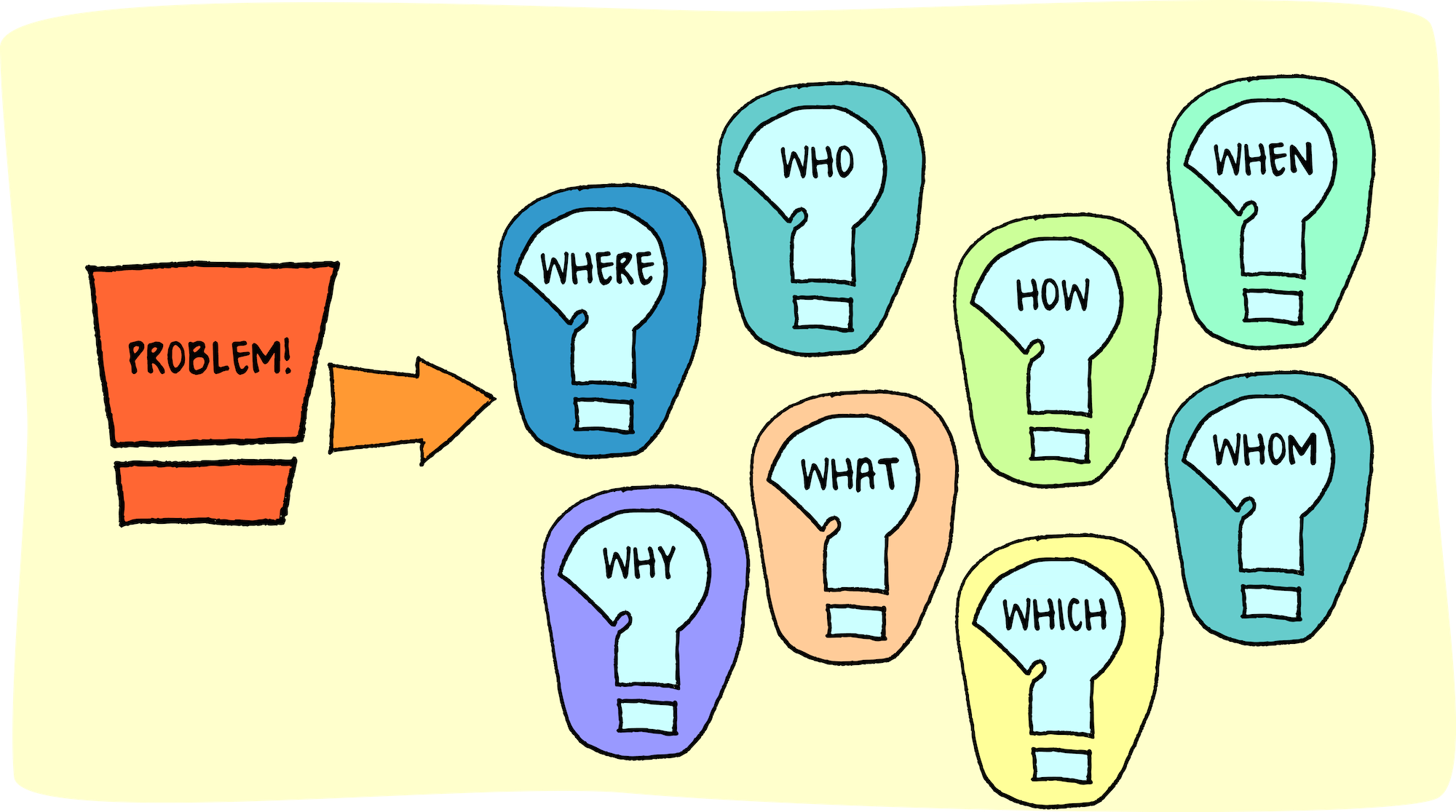Taking the leap into remote work can be incredibly rewarding, both for your business and your employees. But when it comes to hiring your first remote worker, the process can feel daunting. How do you ensure you find the right fit without the traditional face-to-face interactions? Fear not! With the right approach, you can build a successful remote team, starting with your very first hire. Here are 5 Tips For Hiring Your First Remote Worker
>> Unlock passive income Start earning today <<

1. Clearly Define Your Needs and Expectations. 5 Tips For Hiring Your First Remote Worker
Before you even start searching, take the time to clearly define the role you’re filling. What are the essential skills and experience needed? What are the specific tasks and responsibilities the remote worker will handle? Be specific about communication styles, working hours, and performance expectations. A well-defined role attracts the right candidates and sets everyone up for success.


2. Look Beyond Your Usual Talent Pool.
The beauty of remote work is that it opens your doors to a global talent pool. Don’t limit yourself to local candidates. Utilize online platforms like LinkedIn, job boards for remote workers, and professional networking groups to reach a wider range of qualified individuals. You might just find the perfect fit in a different time zone!
>> Unlock passive income Start earning today <<
3. Test the Waters with Project-Based Work.5 Tips For Hiring Your First Remote Worker
Before diving headfirst into a full-time hire, consider starting with a project-based contract. This allows you to assess the candidate’s skills and work ethic without a long-term commitment. It also gives you both a chance to get comfortable with remote collaboration and communication.


4. Prioritize Communication and Transparency.
Effective communication is vital for any team, but it’s even more crucial for remote teams. Set clear expectations for communication channels, response times, and meeting schedules. Utilize video conferencing tools, instant messaging platforms, and project management software to stay connected and ensure everyone is on the same page.
5. Foster a Culture of Trust and Support.
Building a thriving remote team requires a strong foundation of trust and support. Make your remote worker feel like a valued member of the team, not an isolated outsider. Encourage regular communication, celebrate successes, and offer opportunities for virtual team-building activities. Investing in your remote worker’s well-being fosters loyalty and engagement.

Clearly Define Your Needs and Expectations.
The phrase “Clearly Define Your Needs and Expectations” emphasizes the importance of being specific and upfront about what you want in a given situation. It applies to various contexts, including:
Personal projects: When setting goals, clearly defining your needs and expectations involves outlining what you aim to achieve, the level of success you consider acceptable, and any specific requirements or preferences you have.
>> Unlock passive income Start earning today <<
Relationships: In personal interactions, expressing your needs and expectations openly and honestly can prevent misunderstandings and ensure everyone is on the same page. This could involve communication about boundaries, emotional needs, or desired levels of support.5 Tips For Hiring Your First Remote Worker
Professional scenarios: Whether negotiating a job offer, collaborating on a project, or providing feedback, being clear about your needs and expectations helps ensure successful outcomes. This might involve defining deadlines, roles and responsibilities, performance metrics, or desired communication styles.

Problem-solving: When facing a challenge, clearly defining your needs and expectations serves as a guiding light for finding solutions. By understanding what you want to achieve and the constraints you face, you can brainstorm more effective solutions and measure their success against your established criteria.
Overall, “Clearly Define Your Needs and Expectations” is a call for active communication and self-awareness. It encourages you to identify what matters most to you and articulate it effectively to others. This approach fosters cooperation, minimizes misunderstandings, and increases the likelihood of achieving desired outcomes.
Do you have any specific context in mind where you’d like to apply this concept? I can help you further break down your needs and expectations for that situation.
Look Beyond Your Usual Talent Pool.
“Look beyond your usual talent pool” is a call to action for organizations and individuals to broaden their horizons when searching for talent. It encourages stepping outside of your comfort zone and traditional recruitment methods to discover a wider range of qualified candidates who might not fit the typical mold.5 Tips For Hiring Your First Remote Worker
Here are some reasons why you should look beyond your usual talent pool:
>> Unlock passive income Start earning today <<
- Increased Diversity: By expanding your search, you’ll encounter individuals from different backgrounds, experiences, and perspectives, leading to a more diverse and inclusive team. This diversity of thought can boost creativity, innovation, and problem-solving abilities.
- Hidden Gems: Traditional recruitment methods often overlook talented individuals who may not have the exact qualifications or experience listed in the job description. Looking beyond your usual pool can help you uncover hidden gems with transferable skills and the potential to excel in your organization.
- Access to Untapped Talent: The current job market is highly competitive, with many organizations struggling to find qualified candidates. Expanding your search to non-traditional talent pools can give you a competitive edge and access to a larger pool of potential hires.
- Breaking Biases: Unconscious biases can creep into the recruitment process, leading to the exclusion of qualified candidates based on factors like age, gender, or ethnicity. Looking beyond your usual pool can help you mitigate these biases and build a more representative workforce.
Here are some ways to look beyond your usual talent pool:
- Utilize diverse recruitment platforms: Post job openings on platforms that cater to underrepresented groups or specific skillsets, such as niche job boards, professional communities, or social media groups.
- Partner with educational institutions and training programs: Collaborate with colleges, universities, and vocational training programs to identify promising talent before they enter the traditional job market.
- Consider alternative qualifications and experience: Focus on skills and potential rather than just educational background or traditional work experience. Look for transferable skills gained through volunteer work, side hustles, or personal projects.
- Embrace remote work: Hiring remotely opens up your talent pool to a wider geographical range, allowing you to access candidates from different regions and countries.
- Conduct blind resume reviews: Remove identifying information from resumes to reduce the risk of unconscious bias during the initial screening process.
By looking beyond your usual talent pool, you can tap into a diverse and untapped source of talent, fostering a more inclusive and innovative work environment. Remember, the best talent may not always be the most obvious, so be open to exploring new possibilities and challenging your assumptions about who can excel in your organization.
Test the Waters with Project-Based Work.
Diving into project-based work can be exciting, but it’s natural to want to dip your toes in before making a full plunge. Here are some ways to test the waters with project-based work without committing completely:5 Tips For Hiring Your First Remote Worker
>> Unlock passive income Start earning today <<
Start small:
- Micro-projects: Look for short, one-off projects that can be completed within a few days or weeks. This allows you to experience the project-based workflow without a significant time investment.
- Volunteer work: Offer your skills for short-term projects with non-profit organizations or community initiatives. This is a great way to gain experience while giving back.
- Freelance gigs: Find small freelance projects on platforms like Upwork or Fiverr. This lets you test out different client interactions and project types.
Build your portfolio:

- Personal projects: Dedicate some time to personal projects that showcase your skills and interests. This portfolio can later be used to attract clients or employers in project-based work.
- Open-source contributions: Contribute to existing open-source projects to gain experience working on collaborative projects and building your online presence.
Network with project-based professionals:
- Connect with freelancers and independent contractors: Attend meetups, workshops, or online communities to learn from their experiences and get insights into the project-based world.
- Shadow a project: See if you can shadow a project-based professional for a day to observe their workflow firsthand.
Develop essential skills:
- Project management: Learn basic project management skills like time management, budgeting, and communication. This will make you more attractive to potential clients.
- Client communication: Practice your communication skills, especially in building rapport and managing expectations with clients.
- Self-marketing: Learn how to market yourself and your skills effectively to attract clients.
Evaluate your experience:
- Reflect on your successes and challenges: After each project, take time to reflect on what went well and what you could improve. This will help you refine your approach for future projects.
- Set realistic expectations: Remember, project-based work can be challenging and require discipline. Don’t expect overnight success, but celebrate your progress and learning along the way.
Additional tips:
- Start with projects that align with your interests and skills. This will make the experience more enjoyable and increase your chances of success.
- Be clear about your availability and rates. Don’t undersell yourself, but also be realistic about your experience and expertise.
- Build strong relationships with clients. Deliver high-quality work, communicate effectively, and be reliable. This will lead to repeat business and positive recommendations.
By taking these steps, you can gradually test the waters of project-based work and build the skills and confidence to confidently dive in when you’re ready. Remember, it’s a journey, so enjoy the process, learn from your experiences, and don’t be afraid to adapt your approach as you go.
Prioritize Communication and Transparency.
Building a culture of prioritized communication and transparency takes effort and commitment, but the rewards are well worth it. Here are some steps you can take to achieve this:
Define your “why”:5 Tips For Hiring Your First Remote Worker
- Identify the benefits: Clearly understand why good communication and transparency are important for your team, organization, or relationship. This could involve boosting morale, fostering collaboration, building trust, or improving decision-making.
- Set expectations: Determine the level of transparency and communication that is appropriate for your context. Consider confidentiality needs and the maturity of your audience.
Establish clear and consistent communication channels:
>> Unlock passive income Start earning today <<
- Choose the right tools: Utilize a mix of tools like regular meetings, instant messaging platforms, project management software, internal newsletters, and surveys to cater to different preferences and needs.
- Maintain flow: Be consistent and predictable with your communication. Set regular meeting times, update deadlines promptly, and provide timely feedback.
Focus on open and honest communication:

- Share relevant information: Don’t shy away from difficult topics or bad news. Share information proactively and openly, addressing concerns and providing context.
- Encourage two-way dialogue: Create a safe space for everyone to ask questions, express their opinions, and provide feedback without fear of judgment.
- Practice active listening: Pay attention to both verbal and nonverbal cues, acknowledge concerns, and ask clarifying questions to ensure understanding.
Promote transparency in decision-making:
- Share the rationale: Explain the logic behind decisions, even if they’re not universally popular. This helps people understand the process and feel involved.
- Be accountable: Take ownership of mistakes and acknowledge areas for improvement. This builds trust and encourages others to be accountable as well.
- Celebrate successes: Recognize and celebrate achievements, both big and small. This reinforces positive behavior and builds a sense of team spirit.
Additional tips:
- Lead by example: Leaders must be champions of communication and transparency. Model the behavior you want to see in others.
- Invest in training: Provide training on effective communication skills, active listening, and conflict resolution. This equips people with the tools to engage in healthy communication.
- Be patient and persistent: Building a culture of communication and transparency takes time and effort. Be patient, consistently reinforce positive behaviors, and celebrate progress along the way.
Remember, creating a culture of prioritized communication and transparency is an ongoing process. By constantly reflecting and adapting, you can foster a more engaged, productive, and trusting environment for everyone involved.
Foster a Culture of Trust and Support
Fostering a culture of trust and support is essential for any team, organization, or even personal relationship to thrive. It creates an environment where individuals feel safe, valued, and empowered to take risks, collaborate effectively, and achieve their full potential.5 Tips For Hiring Your First Remote Worker
>> Unlock passive income Start earning today <<
Here are some key elements that contribute to a culture of trust and support:
Open and honest communication:
- Transparency: Sharing information openly and honestly, even when it’s difficult, builds trust and demonstrates respect.
- Active listening: Truly paying attention to what others are saying, both verbally and nonverbally, fosters understanding and connection.
- Constructive feedback: Providing feedback in a way that is helpful and supportive, rather than critical or judgmental, encourages growth and improvement.
Mutual respect and empathy:
- Treating everyone with respect, regardless of their position or background, creates a sense of belonging and inclusion.
- Showing empathy for others’ feelings and experiences helps build strong relationships and fosters collaboration.
- Celebrating diversity of thought and perspectives brings richness and creativity to the table.
Psychological safety:

- Creating an environment where individuals feel safe to take risks, fail without fear of punishment, and voice their opinions without judgment is crucial for innovation and growth.
- Providing support and resources to help individuals overcome challenges and achieve their goals demonstrates care and commitment.
- Offering regular opportunities for professional development and learning shows that you invest in your people’s growth.
Collaboration and teamwork:
- Working together towards shared goals fosters a sense of community and purpose.
- Encouraging teamwork and collaboration leverages the strengths of each individual and leads to better outcomes.
- Recognizing and celebrating team achievements motivates and inspires everyone to contribute their best.
Building a culture of trust and support takes time and effort, but the rewards are significant. It leads to a more engaged, productive, and innovative workforce, stronger relationships, and ultimately, greater success for everyone involved.
Here are some additional tips for fostering a culture of trust and support:
- Lead by example: Leaders must be models of the behaviors they want to see in others.
- Be mindful of your language and tone: Words can have a powerful impact, so choose them carefully.
- Celebrate successes, big and small: Taking the time to acknowledge accomplishments reinforces positive behavior and motivates others.
- Deal with conflict constructively: Conflict is inevitable, but it can be an opportunity for growth if handled effectively.
- Show appreciation: Let people know that you value their contributions.
By incorporating these elements into your interactions with others, you can help create a culture of trust and support that will benefit everyone.
>> Unlock passive income Start earning today <<
Remember, hiring your first remote worker is an exciting step towards building a flexible and diverse team. By following these tips and focusing on clear communication, trust, and well-being, you can set yourself up for a successful remote working experience, right from the very first hire.
Make $100k+ working from home with FREE Google Certification trainings
Thank you for taking the time to read my rest of the article, 5 Tips For Hiring Your First Remote Worker
